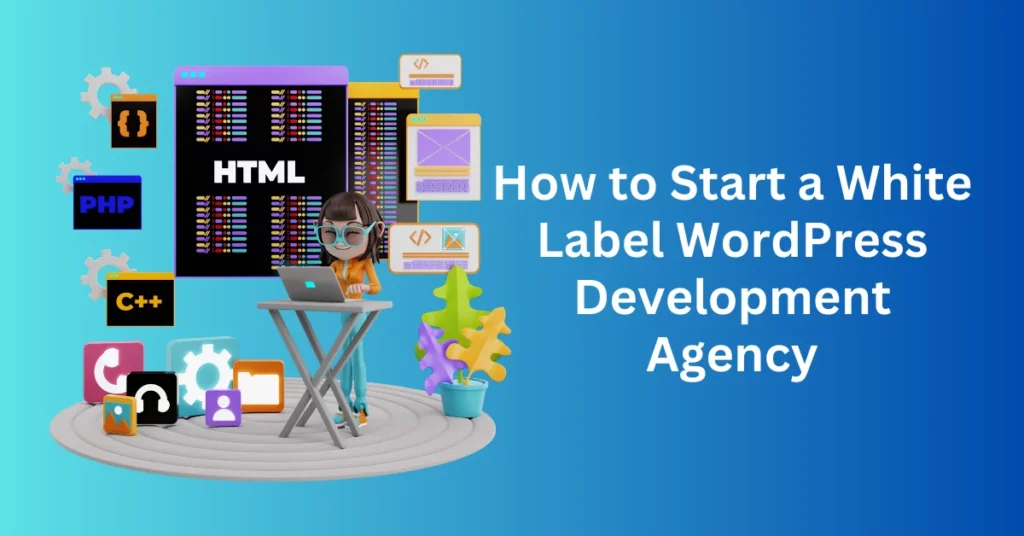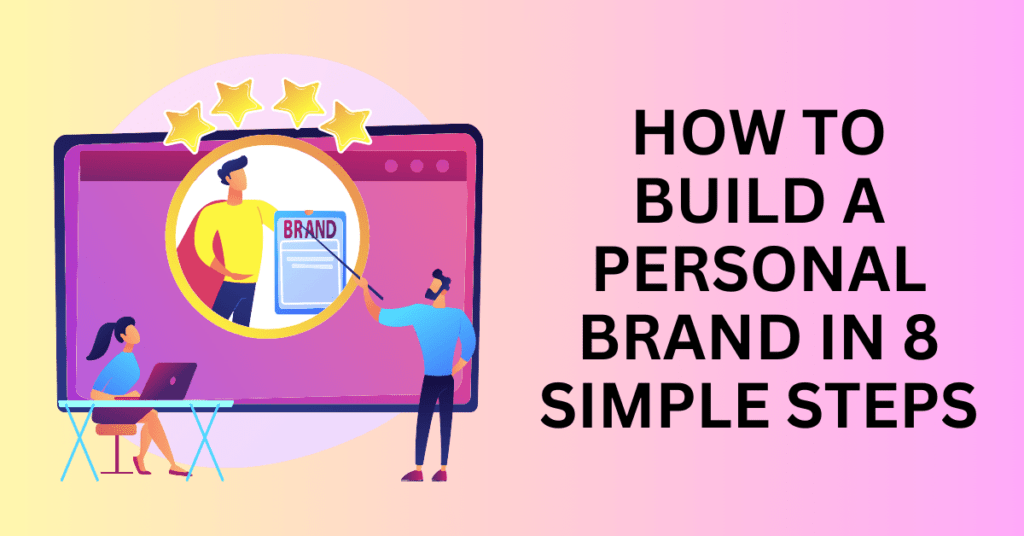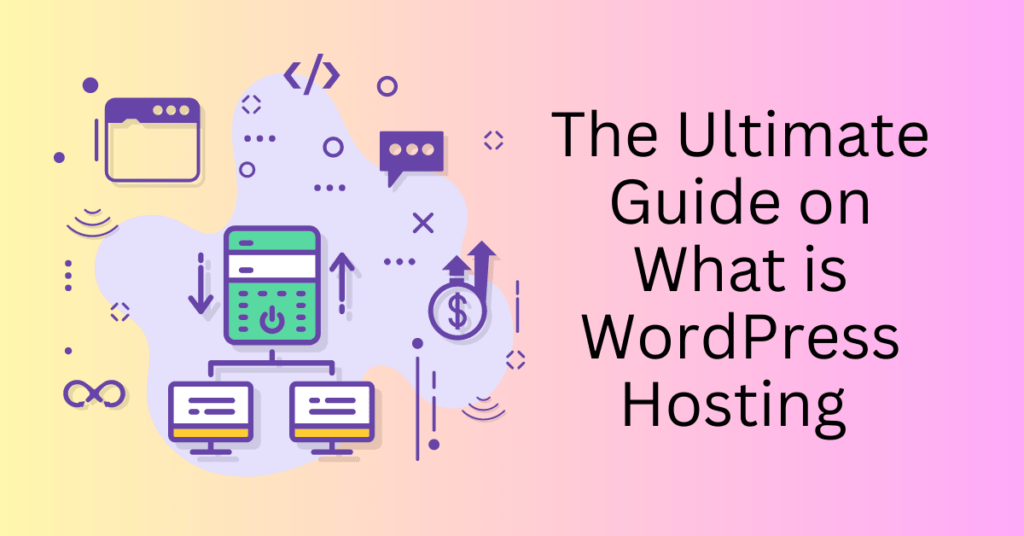If you’re a digital agency owner seeking to streamline your WordPress website projects, partnering with white-label WordPress development services can be a game-changer. Managing clients and running an agency is demanding, making white-label partnerships an appealing solution for many.
Given our extensive WordPress experience, we’ve crafted this guide to assist you in white-labelling your WordPress development services effectively.
Below, we’ll outline some straightforward tips to help you navigate the white-labeling process seamlessly.
Start Your Agency Today with WordPress
What Is White-Label WordPress Development Agency?
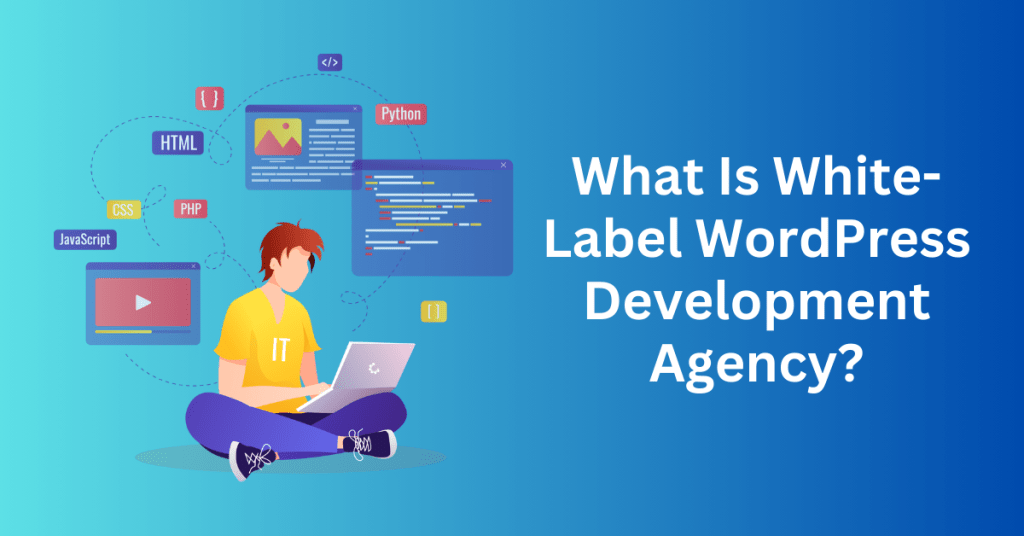
White-label WordPress development enables digital marketing agencies to provide customized WordPress websites to their clients under the agency’s own brand. This approach ensures that the end client is unaware that the website was developed by a third party.
The process of white-label WordPress development involves collaborating with a third-party WordPress freelance developer or an agency.
White-label WordPress development empowers digital marketing agencies to extend their services by delivering tailor-made WordPress websites to clients, all under the agency’s own brand. Through this strategy, clients remain oblivious to the fact that their website was constructed by an external entity.
The process begins with the agency engaging with the client to ascertain their needs and project requirements. Once the agency has gathered all pertinent information, it is relayed to a trusted white-label partner.
This partner then takes charge of the website’s development, tackling everything from design to coding and implementing any custom features requested by the client. Throughout this process, the agency maintains communications with both the client and the white-label partner. It will ensure that any feedback or adjustments are promptly addressed.
Upon completion, the agency reviews the finished website to guarantee it aligns with the client’s expectations and quality standards. Finally, the agency presents the polished product to the client, seamlessly integrating it into their portfolio of services without disclosing the involvement of external developers.
This approach allows digital marketing agencies to expand their service offerings without needing to invest in in-house WordPress development capabilities. It also enables them to maintain a strong relationship with their clients, offering end-to-end project management and delivery under their own brand identity.
Start Your Agency Today with WordPress
What Are the Benefits of a White-Label WordPress Development Agency?
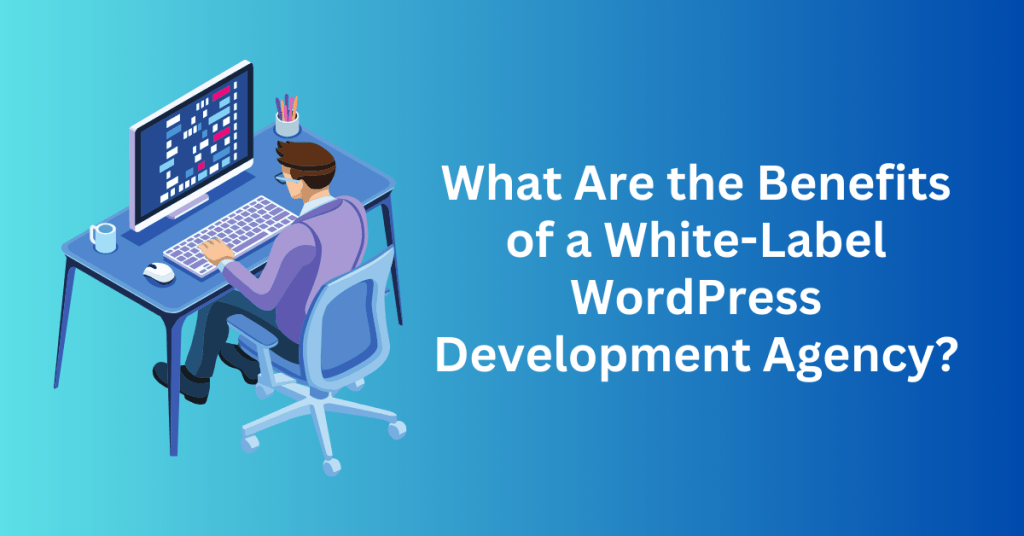
White-label WordPress development offers numerous advantages for both digital agencies and freelancers:
- Enhanced Client Experience: White-label services enable agencies to maintain brand consistency and build trust by incorporating their own brand design elements and logos throughout the website development process. This ensures a seamless and cohesive experience for clients.
- Cost Savings on Development: Besides, building an in-house development team can incur substantial expenses. By opting for white-label services, you can reduce costs significantly while still delivering high-quality WordPress projects. This cost-effectiveness allows you to keep overheads low and potentially increase profit margins. Hence, making your services more competitive in the market.
- Diversified Service Offerings: Incorporating white-label WordPress development into your service offerings allows you to expand your offerings without the need to hire additional developers. This versatility attracts clients seeking comprehensive digital marketing solutions, thereby broadening your client base and revenue streams.
- Scalability and Flexibility: Besides, partnering with a white-label WordPress agency provides you with the flexibility to scale your operations efficiently. With the burden of development work lifted, you can take on more projects and increase sales without being constrained by staffing limitations. This scalability ensures that you can meet growing client demands without compromising on quality or delivery timelines.
- Access to Expertise: In addition, by collaborating with a specialized team of WordPress developers, you can leverage your expertise and industry knowledge to deliver exceptional results. These WordPress experts are equipped to handle complex tasks and ensure that clients’ websites are built to the highest standards, meeting modern design trends and technical requirements.
Now that we’ve explored the benefits, let’s get into some expert strategies for agency owners looking to optimize their white-label WordPress web development services.
Start Your Agency Today with WordPress
1. Decide What Service To Offer and Outsource
Before you start searching for a WordPress development agency, it’s crucial to understand the specific needs of your target audience or existing clients. Identify the types of projects they are likely to require. This will help you better align your selection criteria when choosing an agency to partner with. Collaborate with agencies that have the necessary skills and experience to meet your clients’ unique needs effectively.
For clients needing comprehensive website development services, partnering with an agency specializing in website development is ideal. These services include website design, user experience (UX) optimization, and both front-end and back-end development. Such agencies excel in creating new websites from the ground up. They are perfect for clients seeking a fresh online presence or a complete website overhaul.
Alternatively, if your client already has a WordPress site and needs additional functionality, consider outsourcing to a specialized third party for custom theme or plugin development. This approach allows for bespoke features tailored to your client’s specific requirements. It enhances the functionality and user experience of their existing website.
For clients looking to establish an online store, outsourcing the setup of WooCommerce can streamline the launch of their eCommerce venture. The white-label development team can handle all aspects of setting up the online store. This includes configuring payment gateways, adding products, and ensuring seamless functionality.
Moreover, it’s essential to consider the long-term sustainability of the client’s website by offering ongoing support post-launch. This may encompass WordPress support and maintenance services, such as regular updates, security patches, and troubleshooting assistance. By providing comprehensive support services, agencies can ensure the continued success and functionality of their clients’ websites, fostering long-term client satisfaction and loyalty.
2. Choose The Right WordPress Development Partners – White Label WordPress Development Agency
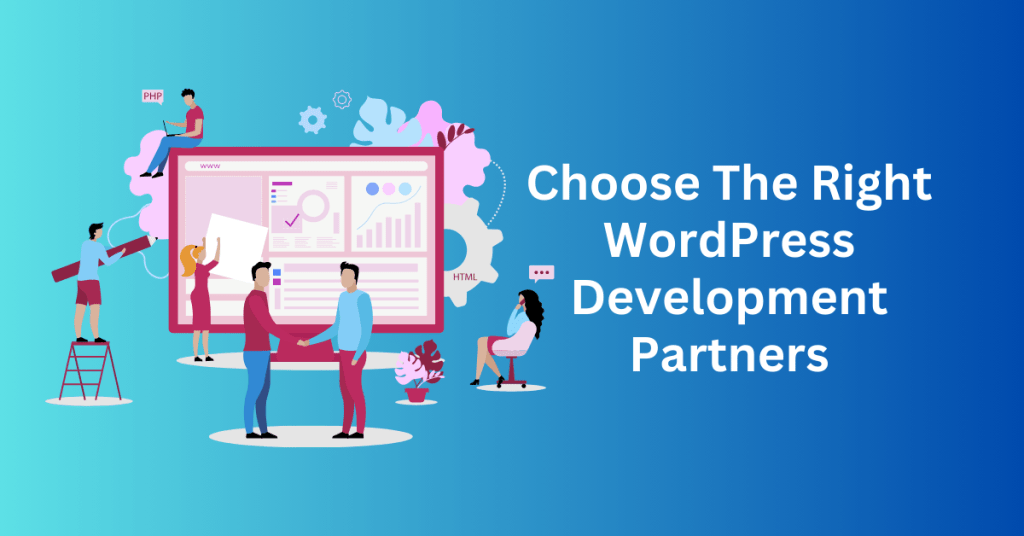
Now that you’ve outlined the development tasks you’re ready to outsource, it’s time to begin your search for the perfect WordPress agency to collaborate with. With numerous options available in the market, it can be overwhelming to make a choice. However, if you’re seeking reliable recommendations, consider exploring our curated list of the best WordPress development agencies. Each agency on our list has undergone thorough review processes, and some have even been partners in previous projects. Feel free to visit their websites and initiate contact to explore potential collaborations.
When evaluating potential WordPress development partners, there are several key elements to consider:
Range of Services:
Assess whether the agency offers a comprehensive list of WordPress services that align with your business needs. Then, ensure they can accommodate the specific requirements of your projects.
Experience and Expertise:
Look for agencies with a proven track record and extensive experience in WordPress development. You can also consider the number of years they’ve been in operation and the depth of their expertise in handling various WordPress projects.
Portfolio and Case Studies:
Review the agency’s portfolio and client case studies to gauge the quality of their work and determine if they’ve tackled projects similar to yours. This insight provides valuable context into their capabilities and approach to WordPress development.
White-labeling Process:
Seek clarity on the agency’s white-labeling process. Understand how they integrate your branding seamlessly into the development workflow and ensure client confidentiality is maintained throughout.
Plugin and Theme Expertise:
Inquire about the agency’s familiarity with specific WordPress plugins or themes that may be relevant to your projects. For instance, if your clients require the use of a particular page builder or security plugin, ensure the agency has experience working with these tools.
Security and Data Protection:
Prioritize agencies that prioritize security and data protection practices to safeguard your clients’ websites. Ensure they adhere to industry standards and implement robust security measures to mitigate risks effectively.
Pricing Structure:
Evaluate the agency’s pricing for white-labeling services to ensure it aligns with your budget and offers value for money. Transparency in pricing is essential for establishing a mutually beneficial partnership.
Client Testimonials and Reviews:
Explore client testimonials on review platforms or social media to gain insights into the agency’s reputation and client satisfaction levels. Pay attention to how they respond to both positive and negative feedback, as this reflects their professionalism and commitment to client relationships.
You can either seek for a top-tier WordPress development agency which comes in a higher work quality and cost. Alternatively, if you prefer to work with freelancers, Fiverr or Upwork is an excellent platform to find skilled web developers who can deliver high-quality work while adhering to your branding guidelines.
3. Secure Your Partnership with a Contract
If you’ve engaged with a WordPress development company and they’re keen on collaborating, it’s time to draft a contract. A comprehensive contract is essential for safeguarding both parties involved in your white-label development arrangement. It lays out crucial details such as project scope, timelines, deliverables, payment structures, and communication protocols.
By documenting everything upfront, you minimize the risk of misunderstandings and ensure alignment among all stakeholders. Consider creating a contract agreement form on your agency’s website for streamlined signing by the third party.
Key elements to incorporate into the contract include:
- Project Scope: Clearly delineate the specific tasks for website development to be outsourced, including features and design elements covered.
- Deliverables and Timelines: Outline expected deliverables (e.g., website mockups, custom plugins) and set clear deadlines for each project stage.
- Payment Schedule: Specify payment terms, including total project cost, milestones, and accepted payment methods.
- Revisions and Approvals: Define the process for design and development revisions, including the number of revisions allowed and approval authority.
- Confidentiality and Intellectual Property: Include clauses protecting client information and intellectual property rights.
- White-labeling Procedures: Detail how white-labeling will be executed, including removing the development agency’s branding and substituting your own.
- Warranties and Guarantees: Outline any warranties provided by the development company regarding work quality and website functionality.
- Termination Clause: Include conditions under which either party can terminate the contract.
- Dispute Resolution: Establish a process for resolving disagreements that may arise during the project.
Before finalizing the contract, ensure thorough review by both parties. Address any queries and confirm full comprehension of all terms. Once satisfied, proceed with signing to formalize your white-label WordPress development partnership.
Please note: This guidance is not a substitute for legal advice. It’s advisable to consult with your attorney or legal team before entering into any contractual agreement.
4. Promote Your Services – White Label WordPress Development Agency
Now that you’ve partnered with a service provider, you’re ready to expand your offerings and cater to both potential and existing clients with WordPress development services.
Firstly, begin by prominently featuring WordPress development in the services section of your website. You can articulate the advantages of this service, such as the ability to obtain a mobile-optimized website quickly and cost-effectively clearly.
Then, specify the range of services you provide, including full website creation, custom theme development, and ongoing WordPress maintenance.
Besides, consider crafting a dedicated landing page that delves deeper into your WordPress development services. You can optimize it for relevant keywords associated with WordPress development and leverage it as a landing page for search ads. Then, incorporate a user-friendly request-a-quote form on this page to streamline lead generation and facilitate user engagement.

In addition, utilize your social media presence to announce the introduction of your new WordPress development services on platforms like LinkedIn. This platform is particularly effective for attracting businesses seeking customized website solutions.
5. Collect Detailed Requirements From The Clients
Congratulations on securing a client for your WordPress development service! Now, it’s crucial to gather comprehensive information about their project to kickstart collaboration with your white-label partner effectively.
A detailed project description is paramount to ensure the development team fully grasps the client’s vision. This should encompass various aspects such as project goals, timeline, target audience, desired functionality, client’s brand identity, website inspiration, and any other pertinent details.
For this stage, I recommend scheduling a call with your client rather than solely relying on written documentation. A conversation allows for a more nuanced discussion of their project needs and helps establish a robust relationship from the outset.
You can consider integrating a WordPress appointment booking form plugin like WPForms on your website to facilitate easy scheduling of meetings with clients. This streamlines the process and eliminates unnecessary back-and-forth emails.
Furthermore, you can utilize free options like Google Meet or Zoom for seamless communication with your client. These platforms offer video conferencing capabilities ideal for discussing project details and fostering clear communication channels.
6. Keep Your Client and Partner in the Loop – White Label WordPress Development Agency
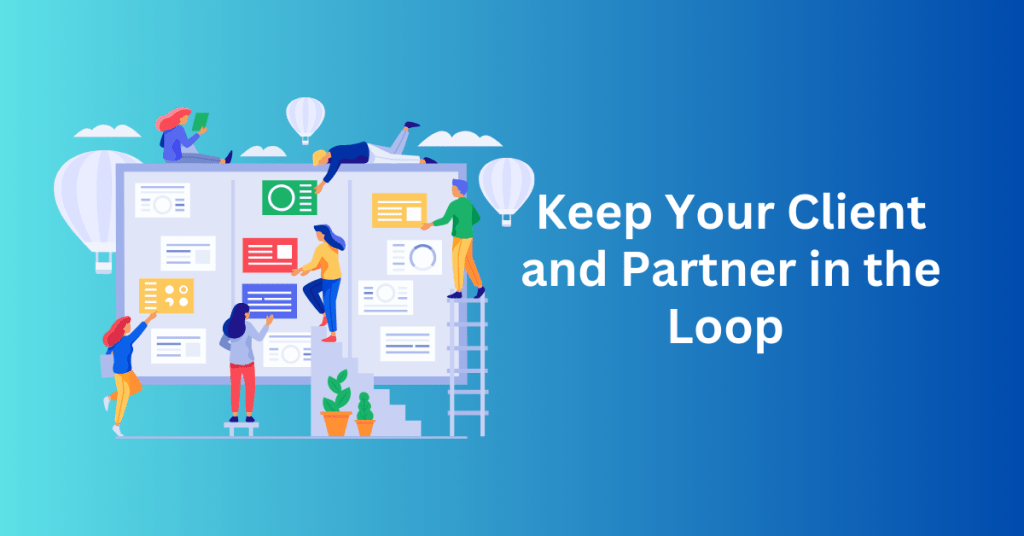
Once your white-label partner is actively involved in the project, maintaining consistent communication between the development team and your client becomes paramount to project success. The objective is to ensure transparency and alignment throughout the project lifecycle.
To facilitate efficient collaboration with your partner, I recommend utilizing a project management tool such as Asana. This tool enables you to track tasks, deadlines, and files, providing everyone involved with clear visibility into project progress and responsibilities.
Consider creating a Trello-like Kanban board directly on the WordPress dashboard of your client’s website. This centralizes project management efforts, keeping all relevant information in one accessible location.
In addition to digital tools, schedule regular meetings with your white-label partner to discuss project updates, address any issues, and ensure smooth progress.
As the project nears completion, conduct thorough quality checks to ensure the website meets established standards and is free from common WordPress errors. It’s essential that the website both looks visually appealing and functions seamlessly before presenting it to your client.
For client communication, consider sending weekly or bi-weekly email check-ins to provide updates on project progress. Additionally, schedule periodic calls to address any questions or concerns they may have and ensure their satisfaction with the project’s trajectory. By maintaining open lines of communication, you can foster a positive client experience and reinforce trust in your services.
7. Collect Client Feedback
Gathering client feedback about your white-label WordPress development experience is invaluable for refining your services and enhancing client satisfaction. Their insights can highlight areas for improvement, such as streamlining communication or expediting website delivery.
If your clients are satisfied with your work, leveraging their positive feedback through reviews can bolster your reputation and attract new business. Social proof, in the form of testimonials and reviews, carries significant weight in converting potential leads into clients.
To solicit feedback effectively, consider integrating the WPForms plugin into your agency website. This plugin simplifies the process of adding a concise feedback form, enabling clients to provide their thoughts conveniently.
Additionally, schedule a follow-up call with your client to delve deeper into their project experience and gather candid feedback. This personal interaction fosters open communication and allows for a more comprehensive discussion of their impressions and suggestions.
By actively seeking and utilizing client feedback, you can continuously refine your white-label WordPress development services, strengthen client relationships, and enhance your agency’s reputation in the industry.
8. Cross-Sell Other Services – White Label WordPress Development Agency
Maintaining a long-term relationship with your clients beyond the completion of their WordPress project is key to fostering loyalty and maximizing client satisfaction. By offering additional services that address their evolving needs, you not only enhance their success but also solidify your position as a trusted partner.
For instance, if your client’s website design is satisfactory but they struggle with visibility on search engine results pages, you can propose your search engine optimization (SEO) and content marketing services. This can help improve their online presence and drive organic traffic to their site.
Regular check-ins with clients post-launch are essential for identifying any issues that may arise. If the website experiences performance issues such as slow loading times, consider offering a specialized speed optimization package to enhance user experience and site efficiency.
Similarly, conducting a user experience audit can pinpoint areas for improvement if visitors are quickly bouncing off the site. Addressing usability issues can significantly enhance visitor engagement and conversion rates.
Expanding your services to include digital marketing channels such as social media management or newsletter campaigns can further extend your client’s reach and engagement with their target audience.
By proactively offering solutions tailored to your client’s specific needs and challenges, you not only demonstrate your commitment to their success but also nurture a long-lasting partnership built on trust and mutual benefit.
Start Your Agency Today with WordPress
Final Thoughts: How to Start a White Label WordPress Development Agency
Starting and running a white label WordPress development agency can be highly rewarding. Success requires the right strategies, dedication, and a clear understanding of the market. With these elements in place, significant rewards are within reach.
Running a successful white label WordPress development agency requires several key elements. You need technical expertise, business acumen, and a client-centric approach. In addition, focusing on delivering quality work and maintaining strong client relationships is important to build a long-term business. Continually evolve to meet market demands. This will help you establish a thriving agency that stands out in the competitive landscape. Your commitment to excellence and adaptability will be the cornerstone of your long-term success.
